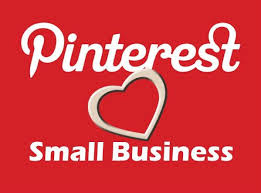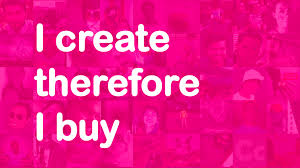What’s the next big thing on Social Media? Google+, Instagram and Snapchat are all being tipped to become the platforms to watch in 2014, but for me I’m tipping Pinterest. Visually stimulating, easy to use and highly effective for generating sales – here’s why Pinterest should be included in your Small Business Social Media strategy.
It’s all about the Visuals
Social Media is full of passers by who are all potential shoppers for your small business products. In the blink of an eye you can be lost or found, depending on how visually appealing you make your company and products.
Posting on Twitter is all about the text in the Heading, with Pinterest it’s all about the visuals. Headings are important, but it’s the visuals you use which are more important to succeed on Pinterest.
You can search for free images on Google images, make sure you select “advanced search” from the settings menu then select “usage rights” to ensure you can legally use the images you wish to use.
Pinterest Gets Results
Statistics show that Pinerest drives 50% more traffic than other Social Media sites. This figure may be a wee bit excessive and vary from country to country, but the fact remains that Pinterest leads to sales – If you have a strategy and commit your time to it.
Certain industries perform very well on Pinterest such as Food, Interior Design, Fashion and any physical product which is visually appealing.
Let your product do the talking by posting high quality images onto Pinterest and always include a URL link back to your company website – make sure it’s the full URL and not a shortened one as Pinterest will flag your posts as spam otherwise.
Be Yourself
Tread this line very carefully, be yourself and reveal your and your company’s personality – but always remain professional. Customers have been exposed to decades of corporate stiffness, politician-like smarminess and advertising saturation – they want something more REAL.
As a sole trader, when people buy my services they’re also buying into me – my way of thinking and my personality. There are hundreds of thousands of other competitors around the world all offering very similar services me – your small business is exactly the same. Products and services in any industry are becoming homogenised, there’s very little difference between the end product the customer receives – but you can make that difference by showing customers the real you.
Create boards and post pictures of places you’ve visited, cars and clothes you like, your favourite food or even some cute kittens and bunnies. Not only will you become more approachable but you have the opportunity to open up dialogue with potential customers by leveraging your interests to forge 1:2:1 relationships.
Remember that people buy from people.
As the masses flock away from Facebook (especially teenagers) and customers become more proficient in using multiple Social Media platforms, Pinterest is one to watch in 2014.
Is Pinterest just for fun or do you think that you can generate sales from it?



